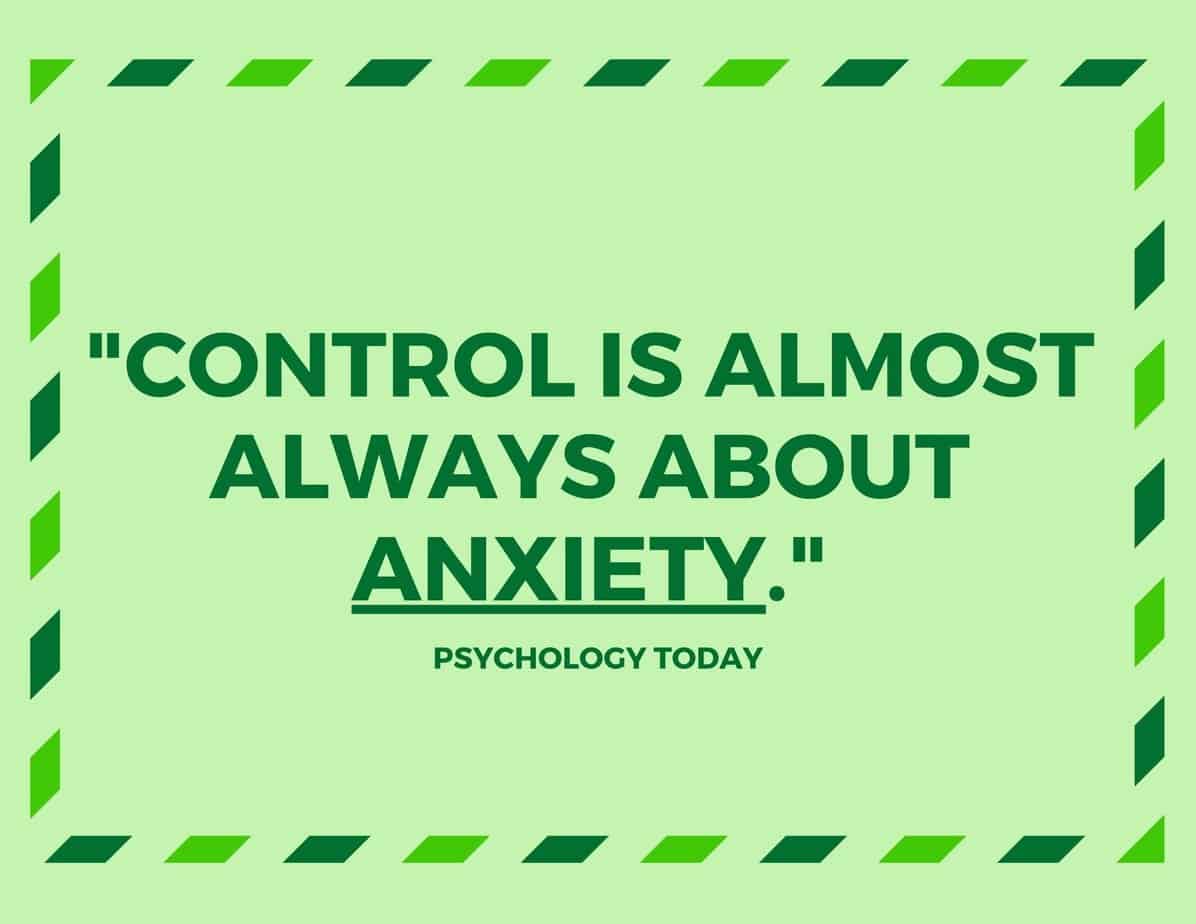Retirement isn’t always a “bed of roses”, especially when your retired husband micromanages everything. Unless dealt with, this can lead to a strained relationship and even divorce.
Open communication is the best way of handling a retired husband who micromanages your life. He may be unaware of his behavior and is just trying to be helpful. This may be further compounded if he feels anxious and insecure.
The majority of men (and women for that matter) have good intentions. Unfortunately, with their newly found free time, some can’t resist throwing their 2₵ in at every opportunity. They might even believe they’re doing good!
While most common in men, women can also exhibit similar behaviors. What used to be a peaceful co-existence becomes nightmarish in retirement.
In some situations, your spouse is oblivious they’ve become downright annoying and controlling. Examples can include:
However well intended, these behaviors feel like control and criticism. Basically, you can’t be trusted to uphold your end. Not conducive to a happy relationship.
Retired Husband Micromanages You
No one likes to feel micromanaged, but how do you deal with it?
First, you want to broach your concern in a non-confrontational manner. In a healthy marriage, both partners strive to grow together. You’ve worked through rocky moments before and this might be yet another.
It’s important to approach this in a calm respectful way. In addition to the actual words spoken, your tone and body language also speak volumes.
If, most of the time, you can discuss and resolve issues, there’s a way better chance you can work through this.
While it’s easy to get angry and tell them to get off your back, that usually leads to hurt feelings or an argument. Another mistake is assuming you can “fix” them – you can’t.
Some relationships are filled with unresolved conflict and simmering resentments. Instead of addressing anything, it often degrades into personal attacks. These only worsen the situation.
Our post Common Marriage Problems After Retirement addresses the importance of good communications.
The Solution
Initiate the conversation expressing your concerns about feeling micromanaged. This needs to be non-accusatory with the intent of sharing. Let him respond and fully listen to his perspective.
Handling a retired husband who micromanages is a bit tricky. He might be shocked and even defensive at first. This isn’t the time to get into the weeds about “what he said” or how deeply hurt you are.
The conversation needs to elevate to understanding his feelings and what’s really behind his behavior.
Even if he gets upset, realize you can only control your own reaction. If things start to get heated, suggest a “cooling off” period. Revisit when you are both calmer and better able to discuss.
Depending on how openly the communication goes, you’ll have a better feel where your partner is coming from. This could fall into several categories:

Retired Husband is Driving Me Crazy
When your retired husband is driving you crazy, the majority of the time it’s because he’s bored and trying to help out. He means well, yet his behaviors are upsetting your routine. Most men struggle in the early days of retirement.
Leaving work behind is a major life transition. Gone are the days of an important position, a regular paycheck, and they’re faced with the daunting reality of what to do.
This is new territory for both of you and can strain the best of marriages. He probably believed he was being helpful and might feel embarrassed. Even after open communication, he still needs to find a way to adapt to retired life.
The Solution
While this might sound obvious, instead of being critical this is an opportunity to work together. In fact, most retired couples should discuss an equitable division of household chores.
All too often, men’s lives center around work. After retiring, they find themselves dependent upon their wives. They may not have any close friends and have never developed any interesting hobbies or interests.
Our Ultimate Guide of Things to Do in Retirement shares strategies to achieve greater social engagement and meaningful activity.
Another factor could be he’s suffering from a loss of importance. Our post Dealing with Loss of Identity shares more insight into this.
When handling a retired husband who micromanages, remember “Rome wasn’t built in a day”. It takes time to settle into your next phase of life.
Retired Husband is Controlling
Micromanagement can also manifest itself due to anxiety. Worrying and fretting about almost anything. While they might mean well, it comes across as controlling and critical of your abilities.
According to Psychology Today, control is almost always driven by anxiety. Someone fearing the worst and constantly trying to ward it off.

Instead of trusting you have things under control, your partner will fret over every little detail. Maybe they’ve always been a bit of a worrywart, only now they have a whole lot more time. And, it seems like they can’t help themselves!
Understandably, many people are concerned what the future might bring. In fact, the #1 retirement fear is outliving your savings.
For some folks, it doesn’t matter how well they’ve financially prepared, they still stress. Our Greatest Retirement Fears expands upon this and other common fears.
The Solution
The first step is getting to the real issue, their anxiety.
This is usually hidden under a myriad of details. Unfortunately, there’s no way of addressing this until your spouse can acknowledge why they’re anxious. If they’re in denial or ignore it, not much will change.
I consider myself a strong woman. Yet, after years of being beaten down in a negative work environment, I was an emotional mess.
With my husband’s urging, I finally pulled the plug and resigned. The scariest and most difficult thing I’ve ever done!
As I share in my Bad Boss post, the work stress had begun to impact my physical health. Lots and lots of stuff to work through.
As the dust settled, I realized that it hadn’t only affected my physical health but my mental as well.
I didn’t want either one of us to ever feel the other one was taking advantage. I left my job with his full support; however, would he resent me if I couldn’t contribute financially anymore?
This made me feel hypersensitive and anxious. As we settled into our new routines, I was irritable and defensive on any spending. I’m not proud how I watched every penny like a hawk.
Overreacting about something as simple as buying cucumbers. Snapping at him instead of being fair and reasonable.
To his credit, Shannon was understanding and we did talk a lot. Even so, it still took several months to come to terms with my anxiety.
By being so supportive, he allowed me the time to work through everything.
If your partner is willing, most couples can work through micromanagement issues due to anxieties. In more extreme cases, professional help can be invaluable.
Related posts which may be of interest: Will Your Marriage Survive Retirement? and Focus on What You Can Control.
Mean Spirited and Self-Centered
There are some folks who are completely self-centered. Although most are adept at masking this, at heart, they’re conniving, manipulative and will do anything to get their way. They need to dominate or life becomes misery.
This often stems from insecurity and an overwhelming need to control. They’ve likely been this way throughout most of their lives. Come to think of it, I had a boss like that! Micromanaging every detail and always trying to make me feel less than.
In a relationship, the partner usually feels trapped. The behavior has been ingrained over the years. They feel whipped and, most, have long since given up.
The Solution
This is an extreme situation for handling a retired husband who micromanages. They’re not going to be fair or work toward anything that doesn’t serve their purposes.
Ultimately, this is about control and their need to dominate. This is their issue and you’re not likely to change them.
Unless they’re willing to take responsibility and do something about it, nothing will change. Without counselling, it’s probable the marriage will continue to suffer.
Retired Husband Syndrome
Another extreme form of controlling behavior is Retired Husband Syndrome. First identified in Japan, studies found older males expected their wives to wait on them hand and foot.
This correlates with increasing stress and health concerns among Japanese women. Not unique to Japan, it’s the fate for wives in traditional marriages.
His recliner has become the throne with demands barked out on a regular basis. Not only is this highly disrespectful, it’s also demeaning.
This may also be aggravated by health or mobility issues. Even so, no one deserves this! In our trip to Puerto Vallarta, we met a woman who shocked us with her story.
She’d spent the last seven years of her life caring for a “miserable old cuss” (her words). What do you do?
The Solution
Their belief is that the woman’s sole purpose is to cater to her husband. This is a throwback to a time long since passed. We earned the right to vote and certainly don’t need to degrade ourselves.
It’s one thing to be supportive, but a line needs to be drawn. If he’s unwilling to listen or change his ways, you may want to question if the marriage is worth it.
Closing Thoughts on Handling a Retired Husband Who Micromanages
As with most marriage issues, communication is key. Unless both of you are heard, seldom does anything get resolved. Micromanagement by a retired husband is fairly common, especially in the early days of retirement.
Understandably, this is a major life event and it takes some time to adapt. He may be trying to be helpful or his behavior may be driven by anxiety. Unfortunately, it usually comes across as controlling and laden with criticism.
In more extreme situations when there’s a dominating and selfish mindset, this can destroy the marriage. You'll have to decide if it's worth it or not.

